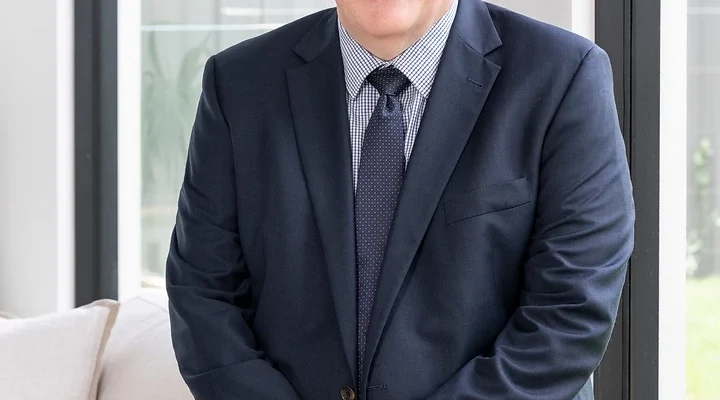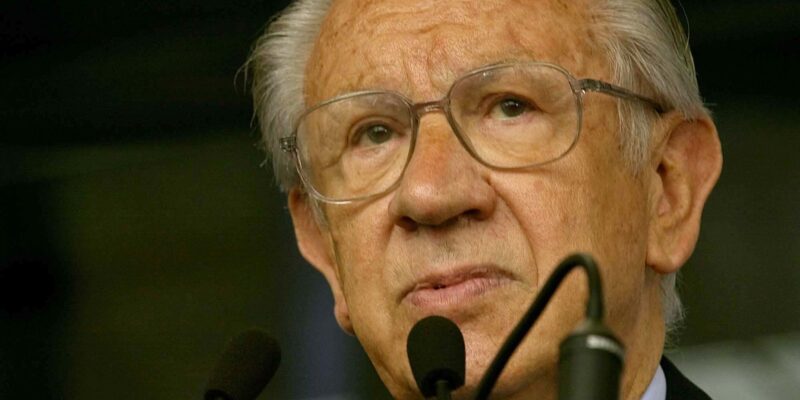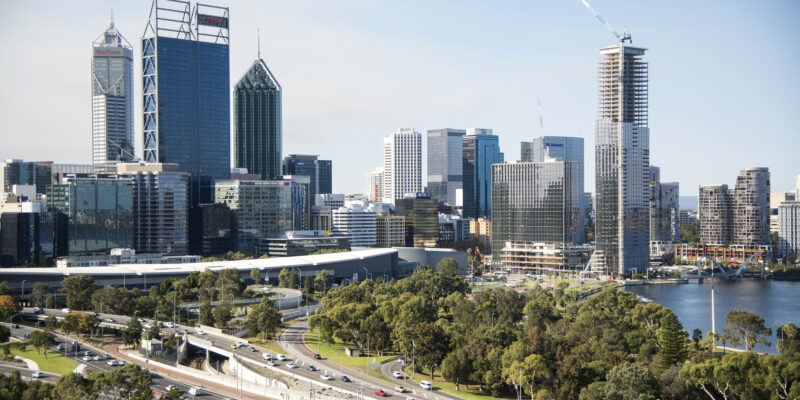We must not look away from the horror of domestic violence
Violence against women is one of the biggest human rights issues we have in this country, according to White Ribbon Australia program manager Dean Cooper.
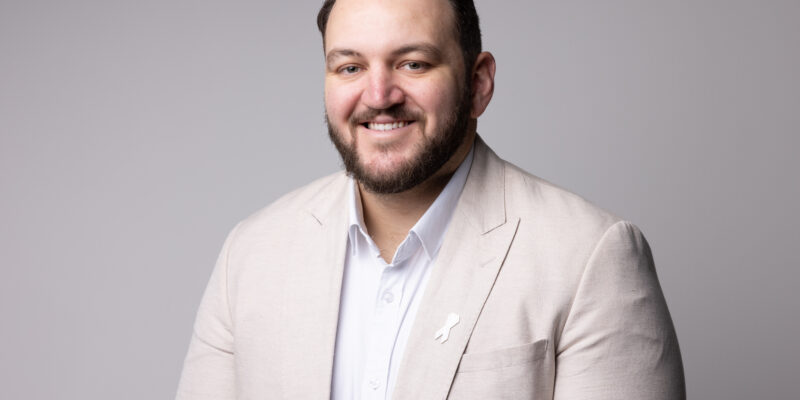
THE scale of men’s violence against women in Australia is “significant” according to White Ribbon Australia program manager, Dean Cooper.
During 2022-23, one woman was killed every 11 days by an intimate partner, according to the Australian Institute of Health and Welfare.
“Men’s violence against women is one of the biggest human rights issues we have in this country, and around the world,” Dean says.
“You will never get a real, true and accurate picture of domestic violence and rates, because it’s such a complex issue with under-reporting, difficulty in detecting coercive control and prosecuting more subtle acts of violence and control.”
The public conversation around domestic violence has increased in recent years and as a community, we are understanding it better, Dean says.
Workplaces now play a large role in preventing violence through policies, education and training, and schools also include respectful relationship programs in their curriculums.
But whether that’s translating to reductions in violence is yet to be proven, Dean says.
“We’re still quite early in our infancy of policy and legislative changes,” he says.
“Only just this year, coercive control and more subtle, insidious forms of abuse are now legislated and can be prosecuted. So, until legislation catches up with women’s experience, we won’t really get at the forefront of seeing a reduction in violence occurring.”
Workplaces can play a vital role in tackling violence against women through not only health and safety rules and training addressing discrimination, harassment, bullying and abuse, but also being a place of refuge for employees.
“People experiencing domestic and family violence often rely on their workplaces to be a safe place to escape violence and really be just a crucial source of social and economic support,” Dean says.
In Australia, 62% of women who have experienced or are experiencing domestic and family violence are in the paid workforce, according to the Champions of Change Coalition.
And nearly one in five reported the domestic violence followed them into the workplace, for example with abusive calls, emails or their partner physically coming to work.
Dean says workplaces offer unique opportunities for employees to be attuned to changes in someone’s presentation, performance or attendance, isolation from work events, overworking or underworking, and big changes in stress and fatigue.
“Workplaces should be capitalising on those moments to start to have conversations and notice changes in people’s behaviours and provide support,” he says.
White Ribbon Australia campaigner Dean and his colleague Tania McNair shared some of the best ways to navigate dealing with domestic violence with practical tips on what to look for at a breakfast event organised by triSearch. To watch a recording and find out more details, click here
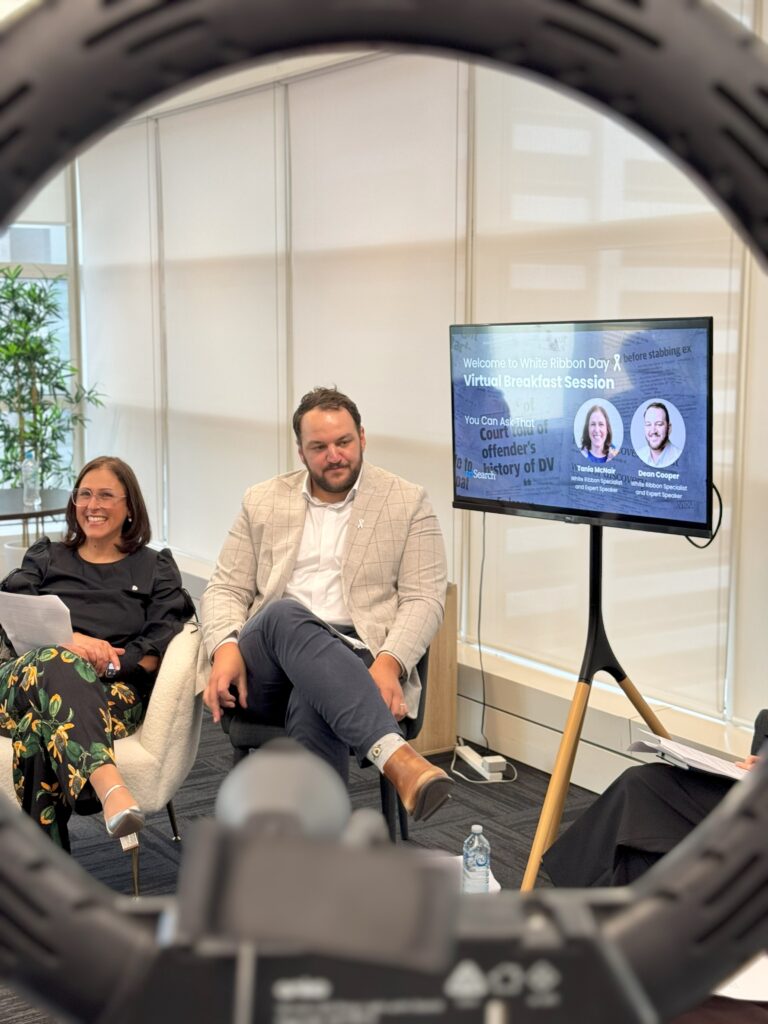
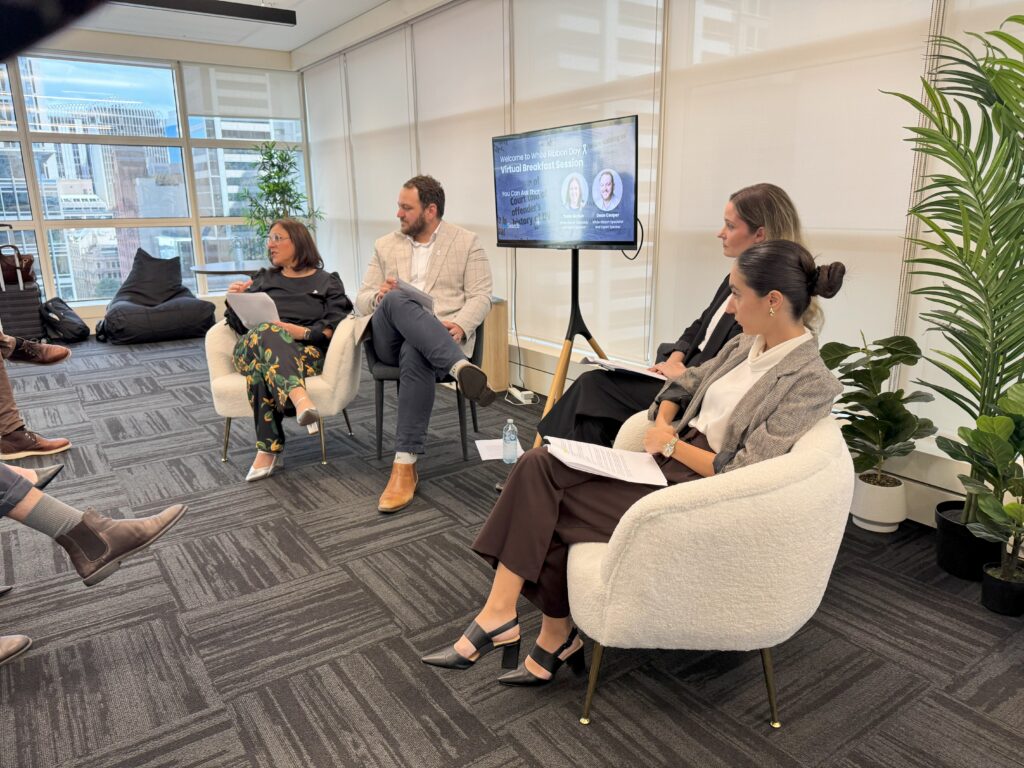
“Sometimes when we’ve listened to women’s experiences, they just wanted someone to notice what was going on – that they’re in this world where they’re gaslit and denied and told it’s their fault. To have someone provide that counter-narrative, to say, ‘Hey, what I’m seeing here isn’t okay, and are you okay’?
“Obviously that can be really confronting, and those conversations can be difficult. And I really think that’s where the workplace responsibility comes in – to have conveyancers absolutely trained to recognise those signs, to generally and respectfully have those conversations and provide those opportunities.
“You never know when that opportunity might be that moment for someone to leave a relationship or to make that phone call to a support service.”
Dean says it is a “low cost” approach, if the question is framed in the right way.
“We have a big fear of getting it wrong. But I really think the consequence of not having these conversations is greater than getting it wrong or extending an offer of support to someone,” he says.
“We lose nothing by continually showing up and saying, I see you. I’m here for you, and at a time when you’re ready, I’ll be available and educated and equipped to have that conversation.”
While we don’t all get the privilege to be able to change legislation, Dean says everyone can contribute to solutions by calling out disrespect and advocating for their workplaces to provide education and training.
“Not all disrespect leads to violence, but all violence starts with disrespect,” he says.
“When we are hearing jokes that put women down, that sexualise women, whether it be rape jokes or we are seeing things in advertisement and media, we can actually provide a counter-narrative to say, ‘Hey, I don’t agree with that’.
“Because in our silence, we all are incorrectly assuming we are okay with this culture that we’re perpetuating.
“Boys just won’t be boys. They’ll be whatever we role model and teach them to be, and that’s where our focus needs to be.”
